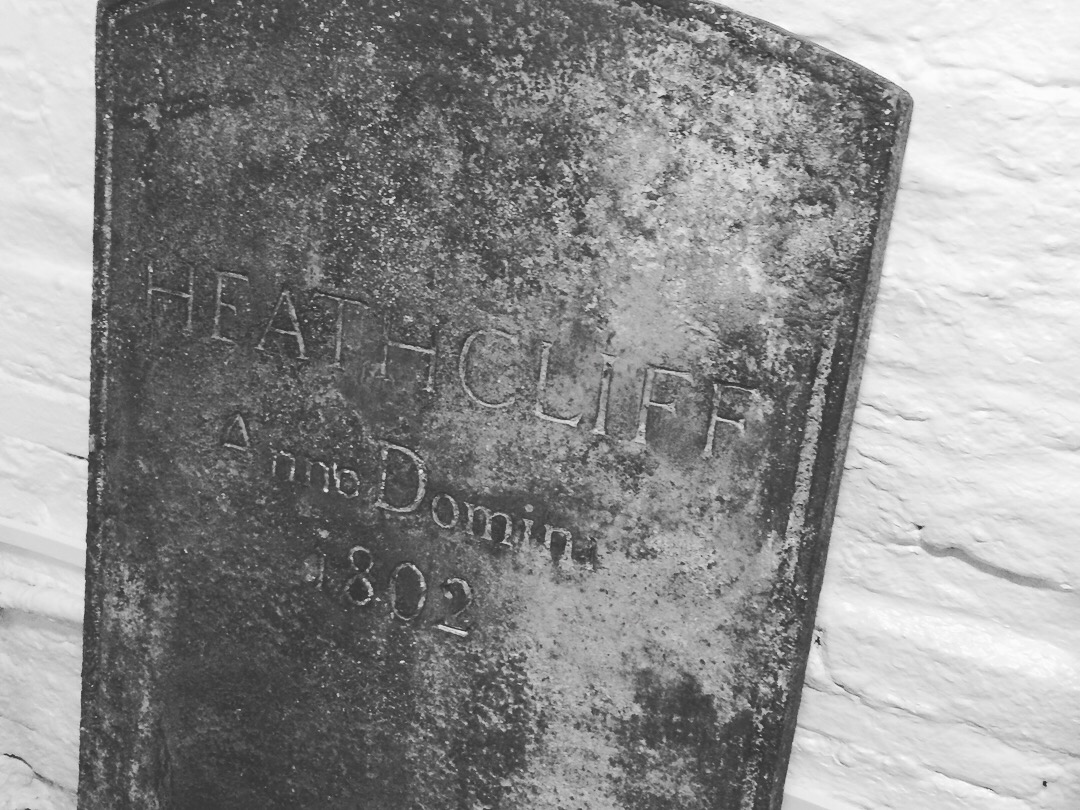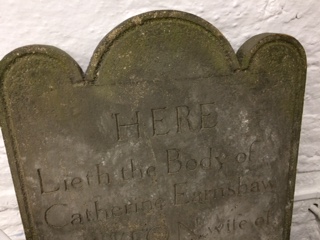I was delighted to be asked to run a writing workshop at The Brontë Parsonage Museum, as part of the Festival of Women’s Writing 2017, and it seemed very fitting that the workshop was aimed specifically at girls aged 12-16.
The Parsonage has long been a place of complex fascination for me. In the past it has felt a bittersweet experience to see the rooms in which the Brontës lived and worked and died too soon.
Last Saturday, I was greeted by Museum Assistant, Victoria Turner. It was just another busy day at the museum, so we would be working in the cellar, a surprisingly bright space, with pens and paper laid out, and the Brontë portraits and family tree displayed on the walls. The only slightly eerie element, perhaps, were the gravestones of Cathy and Heathcliff leaning against the wall: old film props providing a little extra atmosphere.
I began the workshop by asking the girls to learn each other’s names and favourite books or authors, so they could introduce each other. Then, in the first writing exercise, I asked them to remember an object from early childhood, something vivid and beloved that they could recall in detail. We jotted down sensory words connected to the object and then wrote three sentences about it to read aloud.
Even at this early stage, I could tell these were talented writers who had learned to pay close attention to what they were describing.
Next, we moved on to handling objects from the collection, as Victoria passed round intriguing objects and we had to guess their purpose. Some were easy – like the huge chamber pot! Others were trickier for our modern eyes – like this flint box with its steel and flint.
We started to ask questions about these objects – and the ones that were waiting for us upstairs:
- What is it?
- Who owned it?
- How does it make you feel?
- What story could it spark?
And armed with these questions, we followed Victoria upstairs for a tour of the museum.
If you’ve never been, I urge you to visit. The rooms of the Parsonage are frozen in time, still furnished with the possessions of the Brontës. Their lives are conjured up in intricate detail. The house seems to whisper secrets and memories as you walk through its corridors, and the museum staff are generous and knowledgeable.
As part of the celebrations of Branwell Brontë’s bicentenary, there’s a new installation recreating Branwell’s bedroom. More than any other room, this one seemed to capture the girls’ imagination. The dimly lit, chaotic room had scraps of writing and drawings strewn over his desk, an unmade bed and bottles on the floor. It created a vivid impression that this man of such thirst and restlessness had just left the room a moment earlier.
We walked slowly through the Parsonage, each writer choosing objects that drew her eye, from a little wooden chest to a pocket watch on a chain, tiny slender shoes or a pair of glasses.
Back in our cellar, the writers broke for a chat and some juice, before embarking on a longer piece of writing inspired by something in the collection. In less than half an hour, each young writer produced something remarkable. Some wrote poetry, some prose; some wrote finished pieces, others started something longer.
The quality of the writing took my breath away: it was accomplished, atmospheric and compelling. Some pieces were elegantly structured, ending on a line of perfect satisfaction. The voices were assured, effortlessly playing with complex techniques. There were vivid glimpses of characters dreamt up by the girls, speaking crisp, believable dialogue; and moments of drama, emotion and intrigue that demanded attention.
I hope these writers realise how talented they are. I hope they keep writing. I feel strongly that they are part of a tradition of writers from this corner of the world: stepping into the sisters’ shoes indeed.
When I got home from the workshop, I was fizzing with elation, and took myself off for a quick run to process everything I’d heard. By the riverbank, I halted, brought to a standstill by a sudden thought:
What would the Brontës have said, if they could have seen these writers and heard their words today?
I shivered. The hairs on the back of my neck stood on end. I imagined that they would be fiercely, intensely glad.
For more information about events at the museum, please see https://www.bronte.org.uk/whats-on






